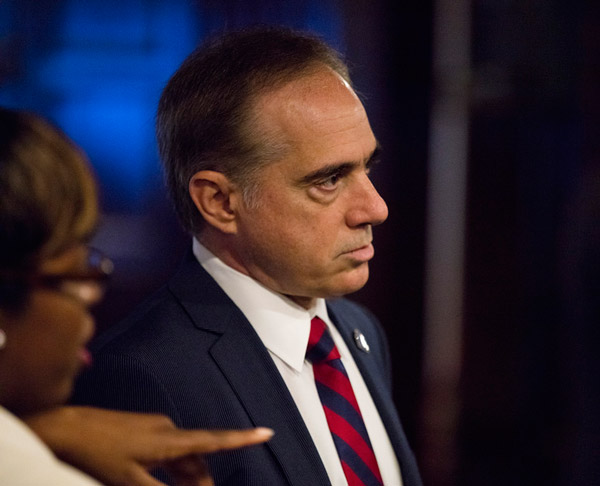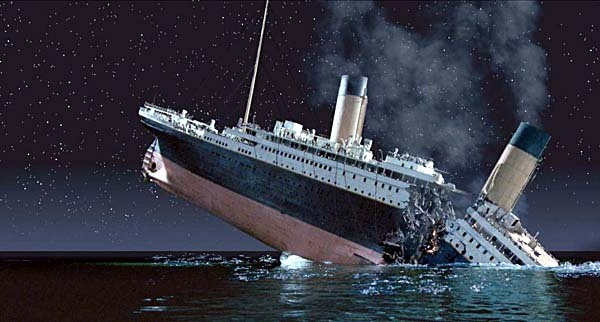Department of Veterans Affairs (“the VA”) Secretary, Dr. David Shulkin means well, but it is not surprising that his leadership is being undermined by the same chronic conditions that have plagued other VA Secretaries.
THE VA IS SIMPLY TOO LARGE TO SUCCEED IN ITS MISSION
This week brings yet three more examples of the chronic problems facing the VA:
– The VA still can’t FIX the Suicide Hotline
– Secretary Shulkin Needs Senate Approval to Fire VA Employees
– VA Dropping Veteran Caregivers from Their Rolls
Indeed, this litany of weekly crises is not dissimilar from scandals that have surfaced under the leadership of other VA secretaries.
What follows is a well-choreographed skit designed to reassure the public and Veterans that all is well in the Music Man’s River City.
– “New Crisis” at the VA attracts national media;
– VA Secretary assures Congressional subcommittee that problem will be fixed;
– Congressmen get public facetime preaching to the converted;
– VA Secretary Shulkin sulks back to his office to prepare for next week’s Congressional hearing;
– VA Labor Union blocks any constructive legislation that would allow the Secretary Shulkin to implement much-needed change within the VA. Why? Just ask J. David Cox, President of the American Federation of Government Employees, who once threatened a VA Secretary with “physical violence” for suggesting a change to the status quo.
For those who have followed this same tragic charade for many years, it is clearly evident that the VA is too big to succeed. In the words of Nassim Taleb, the VA is fragile.
In my opinion, NO AMOUNT OF MONEY or CHANGE IN LEADERSHIP or ENACTMENT OF NEW LEGISLATION will bring about A MORE RESPONSIVE VA.
The VA has become a bureaucracy that answers only to itself and is not responsive to the needs of Veterans. Frankly, the VA has lost its way and very little will change unless the VA is broken down into far smaller manageable components.
While smaller components of the VA will invariably fail, A SMALLER AND LESS CENTRALIZED VA WON’T COMPROMISE THE FULL MISSION.
Will “change you can believe in” actually take place? I think not, considering the entrenched political interest in maintaining the status quo and the patronage of a large block of voters represented by J. David Cox.
As presently configured, there is no possible way that the VA can fulfill President Abraham Lincoln’s promise: “To care for him who shall have borne the battle, and for his widow, and his orphan” by serving and honoring the men and women who are America’s Veterans.
As argued on several other occasions, the VA should be reconfigured to concentrate on those Veteran functions which require centralization. All other activities should be assigned to smaller VA components or outsourced (with supervision) to the private sector.
For instance, the VA centralized suicide crisis line makes little sense. Aside from the fact that the crisis line is currently non-responsive (and has been for a long period of time), it seems evident that we should allocate responsive resources far closer to a high-risk Veteran.
Let’s face it, few jumpers have been talked down off the ledge by a Call Center. If you want to deal with high-risk Veterans in urgent need of support, get human resources to them as quickly as possible. THINK LOCAL and COMMUNITY-BASED SERVICES.
While this more decentralized approach may not resolve the current Crisis Center problems, it would be far easier to manage and control at a local level. Better yet, high-risk Veterans will benefit from a far more responsive human touch by local communities that truly care.
For Veterans, BIG IS NOT BEAUTIFUL! Many Veterans see a largely unresponsive institution that seems more preoccupied with statistical adherence to protocol than positive patient outcomes. Wouldn’t it be wonderful if we could turn that perception around?
From the perspective of the VA, it is a lot easier to say that “we need more resources to deal with current shortcomings,” rather than face the reality that the VA has become a dysfunctional bureaucracy.
The ability to turn around the “Titanic” VA was lost many years ago. Going forward, we must chop down the VA into far smaller component “passenger ships” with accountability and leadership that can truly effect meaningful change.
Sure, one or more of these smaller components may fail, but not ALL Veterans will be held hostage by the continued failure in leadership of an INSTITUTION THAT IS TOO BIG TO SUCCEED.
ShareAPR
2017



About the Author:
Vietnam vintage US Army officer who honors the brave men and women who serve our country.